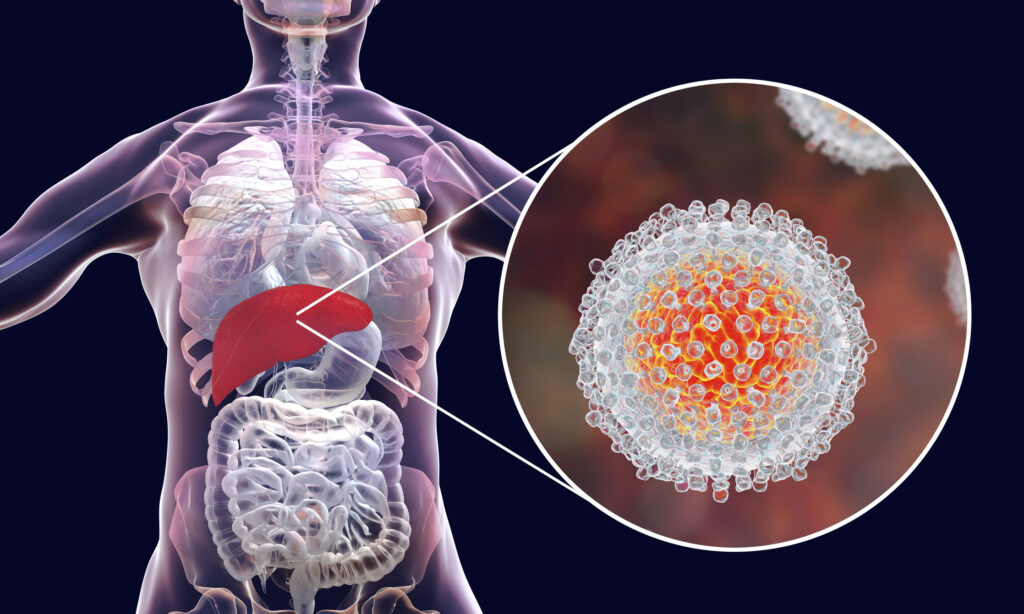Hepatitis, a prevalent viral infection affecting millions worldwide, leads to liver inflammation and is caused by various hepatitis viruses: A, B, C, D, and E. Over time, substantial progress has been made in treating hepatitis, offering hope to those grappling with the condition.
Advancements in Hepatitis Treatment: Paving the Road to Recovery
In this piece, we delve into the present treatment avenues for hepatitis and the strides taken in managing this potentially grave illness.
Hepatitis A Treatment:
Typically, hepatitis A resolves spontaneously without specific medical intervention, emphasizing supportive care like rest, hydration, and a wholesome diet. In severe or prolonged cases, antiviral medications might be prescribed, especially for individuals with existing liver ailments.
Hepatitis B Treatment:
The objective of hepatitis B treatment is to curb viral replication, lessen liver inflammation, and stave off complications. Commonly used antiviral drugs, such as interferon alpha and nucleoside/nucleotide analogs like entecavir or tenofovir, aid in suppressing the virus, enhancing liver function, and mitigating the risk of liver cirrhosis and cancer.
Hepatitis C Treatment:
In recent years, the landscape of hepatitis C treatment has undergone a revolutionary shift. Direct-acting antiviral (DAA) medications have transformed the management of hepatitis C, boasting high cure rates and minimal side effects. Administered orally for a specified period (typically 8 to 12 weeks), these medications directly target the hepatitis C virus, inhibiting its replication and ensuring sustained virologic response (SVR), tantamount to a cure.
Hepatitis D Treatment:
Hepatitis D, a complex form occurring exclusively in individuals already infected with hepatitis B, lacks specific antiviral therapy. Treatment centers on symptom management and hepatitis B virus replication suppression using antiviral drugs. In select cases, interferon alpha may be employed to suppress hepatitis D virus replication, although its efficacy may be limited.
Hepatitis E Treatment:
In most instances, hepatitis E resolves spontaneously without specific treatment. Supportive care, encompassing rest, hydration, and a balanced diet, is generally advised. Nevertheless, in severe or persistent cases, antiviral therapy might be contemplated under healthcare professional supervision.
Advancements in Hepatitis Treatment:
The advent of direct-acting antiviral (DAA) medications for hepatitis C marks a watershed moment, furnishing a cure for the majority afflicted with the virus. These medications tout high efficacy rates, shorter treatment durations, and minimal side effects vis-à-vis older regimens. They have revolutionized hepatitis C treatment, ushering in improved outcomes and a diminished liver disease burden worldwide.
Conclusion:
The strides made in hepatitis treatment have substantially ameliorated the management and prognosis for those grappling with this viral infection. From antiviral medications for hepatitis B to supportive care for hepatitis A and E, and the groundbreaking direct-acting antivirals for hepatitis C, these treatment modalities offer prospects of recovery and an enhanced quality of life.
It is imperative for hepatitis patients to seek medical counsel and treatment from healthcare professionals versed in managing viral hepatitis. Early diagnosis, access to suitable treatment, and continual monitoring are pivotal in combating this global health challenge and mitigating liver-related complications. With sustained research and medical breakthroughs, the future holds even more promising avenues for hepatitis treatment and prevention.
